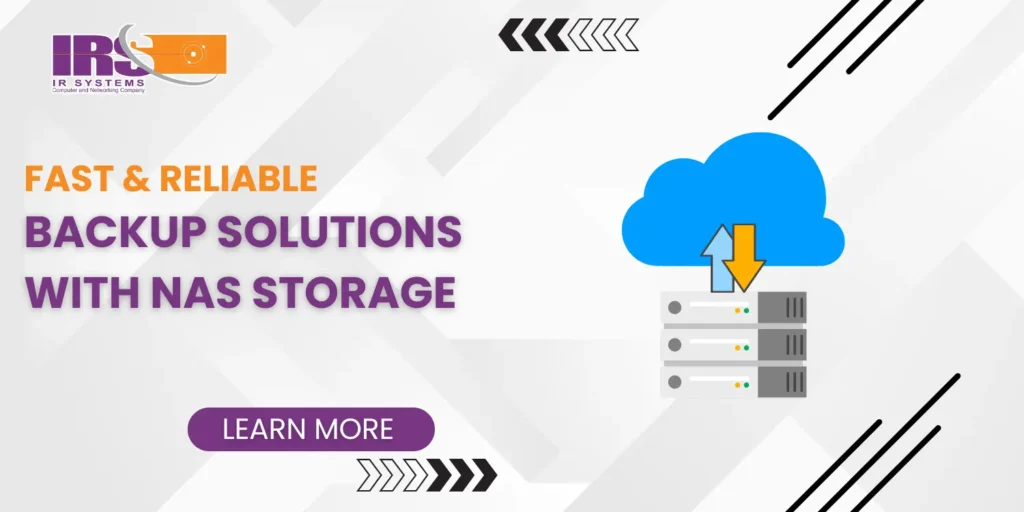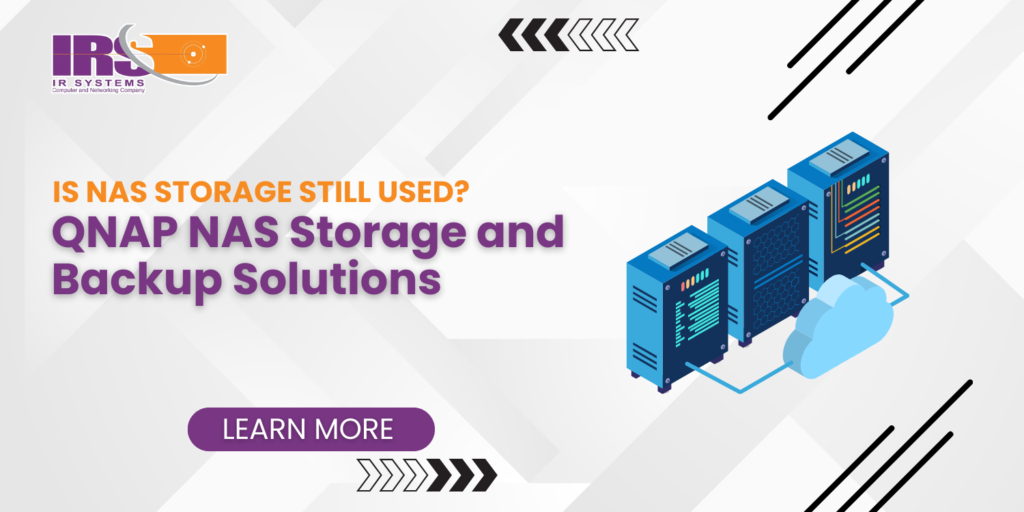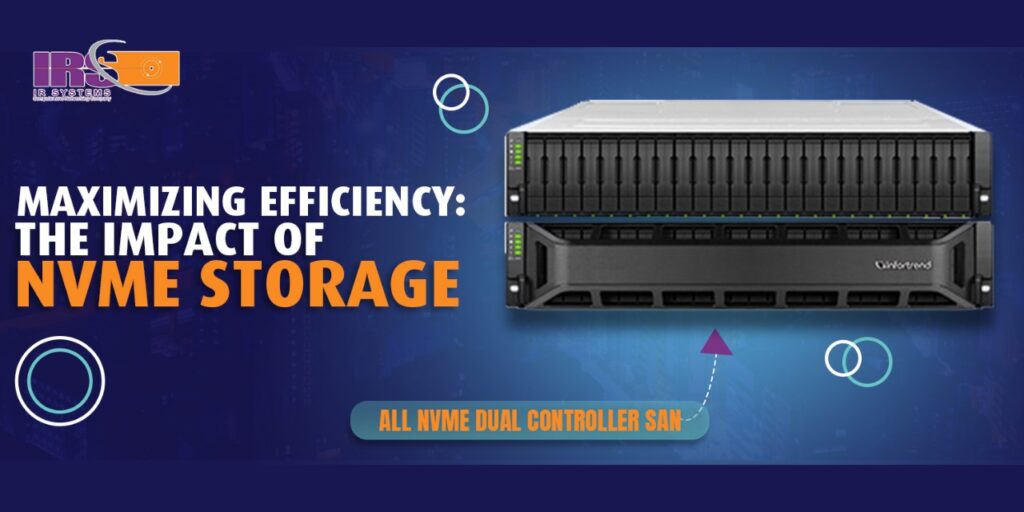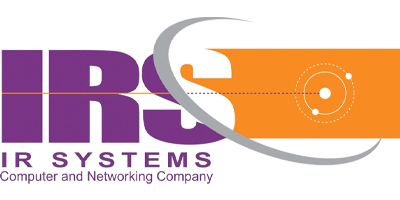Fast & Reliable Backup Solutions with NAS Storage

In a world where data is critical to operations, finding the fastest backup type is essential to keeping systems running smoothly. Whether you’re managing personal files or overseeing large-scale corporate data, quick and reliable backup solutions ensure your information is always safe and accessible. NAS storage offers a powerful solution with robust options for speed and security. This blog will explore different types of backup systems, explain the advantages of NAS storage, and highlight the importance of backup solutions . We’ll cover which types of backup are quickest and how they fit into various data needs, while also exploring the value of local services in enhancing data safety and efficiency. Understanding Backup Types: Which is the Fastest? To choose the fastest backup type, it’s essential to understand the primary options available: 1. Full Backup This backup type copies all selected data, providing the most complete backup. However, it can be time-consuming for large datasets, as every file is backed up each time. This method is best used sparingly, due to the considerable storage it requires. 2. Incremental Backup Incremental backups only save changes made since the last backup, making them significantly faster than full backups. They’re ideal for reducing backup time and storage, especially when frequent updates are necessary. 3. Differential Backup Similar to incremental backup, differential backups save changes since the last full backup. They are slightly slower than incremental backups but offer a balanced solution between speed and data restoration convenience. 4. Mirror Backup A mirror backup replicates your data in real-time, reflecting any changes or deletions instantly. While mirror backups are fast, they require constant management to prevent accidental data loss from unwanted changes. Among these, incremental backup generally offers the fastest speed and is preferred for frequent, low-impact updates. When implemented with NAS storage , incremental backups become a highly efficient option for businesses and individuals seeking rapid, secure data protection. Why Choose NAS Storage for Backup? NAS (Network-Attached Storage) is a versatile storage solution designed to provide centralized and accessible data storage over a network. NAS storage offers several key advantages: Speed and Accessibility: NAS systems enable quick access to files across multiple devices on the network, making it easy to back up data rapidly. This accessibility ensures files are always available and can be restored with minimal delay. Scalability: NAS devices are easy to expand as your storage needs grow, allowing you to add additional drives without complex configurations. This flexibility supports growing businesses and individuals with increasing data demands. Security: NAS devices offer advanced data encryption and user permissions, allowing secure data backup within a controlled environment. Security features are essential, especially when managing sensitive information in business settings. For businesses looking to optimize data management, NAS storage offers a powerful solution to centralize data and streamline backup processes. Exploring Backup Solutions: Every business’s growing demand for data storage solutions has led to the emergence of tailored backup solutions that cater to both individuals and businesses. Whether for personal use or corporate-level data management, these solutions provide the necessary support to protect and restore data quickly and effectively. Types of Backup Services Backup solutions offer a range of services: Cloud Backup Cloud-based solutions store data remotely, providing high accessibility and allowing users to retrieve data from any internet-enabled device. Cloud backup services are ideal for offsite data protection but may experience slower upload times based on internet speed. Local Backup For those who prefer offline backup solutions, local backup services use physical storage devices like external hard drives or NAS systems. Local backups ensure rapid access without internet dependency, making them a top choice for quick, onsite data recovery. Hybrid Backup Combining the best of cloud and local backup, hybrid solutions allow for data storage in both environments. This approach provides flexibility, enabling users to back up essential data onsite for speed while keeping less critical files on the cloud. Managed Backup Services Managed services provide expert oversight, handling the complete backup process, ensuring data integrity, and troubleshooting issues as they arise. These services are invaluable for businesses without dedicated IT staff to manage data backups in-house. Each of these options offers unique advantages depending on your specific requirements. For the fastest and most reliable solutions, backup solutions can provide customized services that fit individual and business needs. How NAS Storage Supports Fast and Reliable Backup Solutions Incorporating NAS storage into your backup strategy can significantly enhance speed and convenience. Here’s how: 1. Centralized Data Access With NAS storage, all data is stored in one accessible location, which reduces the time it takes to initiate backups across devices. This accessibility is especially beneficial for organizations with multiple users needing quick access to data. 2. Automatic Backup Scheduling NAS systems often come with scheduling capabilities, allowing backups to run automatically. This automation saves time, particularly with incremental backups, making it easy to maintain up-to-date copies without manual intervention. 3. Reduced Network Congestion By keeping backups localized within a network, NAS storage helps alleviate bandwidth constraints, ensuring that network resources remain free for other critical functions. For those seeking quick and efficient backup solutions, NAS storage is an excellent investment, offering not only speed but also the reliability needed for smooth data management. Benefits of Reliable Backup Solutions Opting for locally managed backup solutions offers several advantages: 1. Tailored Support Providers understand the unique needs of local businesses and individuals, offering tailored solutions and immediate assistance. 2. Improved Data Protection Local backup providers often offer enhanced security measures to protect data from threats specific to the region, ensuring information is safe from unauthorized access. 3. Cost-Effective Solutions Local services are often more affordable than international providers, making it easier for businesses to invest in reliable backup without excessive costs. 4. Faster Recovery Times By choosing backup solutions , you gain quick access to support and faster data recovery, ensuring minimum downtime for business operations. When combined with NAS storage , these backup solutions create a robust framework that prioritizes speed and reliability. FAQs What is
QNAP NAS Storage and Backup Solutions

In today’s digital age, data storage needs are more critical than ever. Businesses and individuals alike rely on efficient, secure, and scalable storage solutions to safeguard their data. One popular storage solution that remains widely used is NAS storage, especially QNAP NAS storage. But with the evolution of cloud storage and advanced data management systems, one might wonder: Is NAS storage still used? This article explores the advantages of NAS storage, highlights the features of QNAP NAS system, and discusses backup solutions for businesses and individuals. What is NAS Storage? NAS (Network-Attached Storage), is a dedicated file storage system that allows multiple users and devices to access data from a centralized, network-connected location. NAS storage solutions provide easy access to data, scalability, and high-level security, making them ideal for business environments. Why is NAS Storage Still Relevant? Despite the rise of cloud-based solutions, NAS storage remains highly relevant due to its cost-effectiveness, data privacy, and control over data access. Here are a few key reasons why NAS storage is still widely used: Data Privacy and Control: With NAS storage, data remains under the organization’s control without relying on third-party providers. This ensures data privacy and meets security requirements for sensitive information. Scalability: NAS storage solutions, such as QNAP NAS servers, allow organizations to expand their storage capacity as their data needs grow, making them suitable for long-term use. Accessibility and Efficiency: NAS storage offers high-speed access to data on the local network, making it ideal for teams that need to access large files or databases without delays. The Role of QNAP NAS Storage QNAP NAS system is a leader in the NAS storage market, offering robust solutions for businesses and individuals who need reliable data storage and access. QNAP NAS servers are designed with advanced features that support efficient data management, backup, and sharing. Let’s explore some of the key benefits of using QNAP NAS storage. Key Benefits of QNAP NAS Storage High Performance and Reliability: QNAP NAS servers are built for high performance, providing stable and fast access to data across multiple devices. Data Security and Encryption: QNAP NAS offers various security features, including encryption, to protect data from unauthorized access, ensuring business continuity. Efficient Backup Solutions: With QNAP NAS, users can easily implement backup strategies to secure their data. This is especially valuable for businesses seeking reliable backup solutions. App Integration and Flexibility: QNAP NAS servers support various applications, making them versatile for different storage needs, whether for media streaming, file sharing, or cloud backup. User-Friendly Management: QNAP’s interface is designed to be intuitive, allowing users to manage storage, access data, and configure settings without specialized IT knowledge. Why Use QNAP NAS Storage for Backup Solutions? For organizations and individuals, data security and accessibility are crucial. Backup solutions must be dependable, secure, and efficient, making QNAP NAS storage an ideal choice. Here’s how QNAP NAS system aligns with effective backup practices: Local and Remote Backup Options: QNAP NAS storage allows users to set up both local and remote backups, ensuring data remains protected against physical damage or cyber threats. Automated Backup Scheduling: Users can schedule backups at regular intervals, reducing the risk of data loss due to forgotten or inconsistent manual backups. Seamless Data Recovery: QNAP NAS provides fast data recovery options, enabling businesses to minimize downtime in case of data loss. Cost-Effectiveness: Compared to cloud-based backup services, QNAP NAS system offers a cost-effective backup solution, as users have direct control over their data without recurring subscription costs. Features of QNAP NAS Server QNAP NAS servers come packed with features that make them an excellent choice for organizations looking for robust and scalable storage. Here are some of the top features: File Sharing and Synchronization: QNAP NAS supports cross-platform file sharing, allowing users to access and sync files across different devices, enhancing collaboration within teams. Flexible Storage Management: With support for RAID configurations, QNAP NAS ensures data protection and optimal storage utilization. Virtualization and Cloud Backup: QNAP NAS servers support virtualization, allowing businesses to create virtual machines on the server itself. They also offer cloud backup options, ensuring that data can be backed up to a cloud service if required. Multimedia Management: QNAP NAS storage is designed to handle multimedia files efficiently, making it popular for creative professionals who need a secure space to store and edit large files. How Backup Solutions Can Benefit from QNAP NAS Storage Reliable backup solutions are essential for businesses to protect their valuable data from cyber threats, hardware failures, and accidental deletions. QNAP NAS system provides a robust foundation for backup solutions by offering: Enhanced Data Security: QNAP NAS servers include advanced security protocols, ensuring that sensitive information remains protected. High Availability: QNAP NAS system offers high availability, meaning data is always accessible when needed. This is crucial for businesses that need to maintain uptime. Cost Savings: With QNAP NAS, businesses can set up efficient backup systems without the ongoing costs associated with cloud storage. Control and Flexibility: Unlike cloud storage, NAS storage provides complete control over data, including how and when backups are conducted. This flexibility is valuable for organizations looking for tailored backup solutions. When to Choose NAS Storage Over Cloud Storage While both NAS and cloud storage have their advantages, NAS storage is often the better option for organizations that require: Complete Control Over Data: For companies dealing with sensitive information, NAS storage ensures full control over data without relying on external providers. High-Speed Data Access: NAS storage provides fast, local network access to data, ideal for teams working with large files. Reduced Long-Term Costs: NAS storage can be more cost-effective than cloud solutions, especially for long-term data storage and management needs. How IR SYSTEM Can Support Your NAS and Backup Needs At IR System, we understand the importance of reliable data storage and backup solutions for businesses and individuals. Our team specializes in QNAP NAS system and backup solutions, providing tailored services to meet our clients’ unique needs. Whether you’re looking to set up a secure storage
Maximizing Efficiency: The Impact of NVMe Storage in IR Systems

In the dynamic world of Information Retrieval (IR) systems, speed and efficiency are paramount. With the advent of Non-Volatile Memory Express (NVMe) storage technology, IR systems are experiencing a significant transformation, unlocking unprecedented levels of performance and responsiveness. Let’s explore how this storage is revolutionizing IR systems across various domains. Accelerating Data Retrieval with NVMe Storage This storage, designed specifically for flash memory, offers remarkable advancements in data retrieval speed compared to traditional storage solutions. By leveraging the parallelism and low-latency communication of the PCIe interface, the storage significantly reduces data access times, enabling IR systems to retrieve information at blazing speeds. Whether it’s querying vast databases or searching through multimedia content, NVMe-equipped IR systems deliver unparalleled responsiveness, enhancing user experience and productivity. Optimizing Indexing Efficiency Indexing lies at the core of IR systems, facilitating efficient data retrieval based on user queries. The storage plays a pivotal role in optimizing indexing processes by providing rapid read and write capabilities. The high throughput and low latency of storage enable expedited indexing of new data and updates to existing indices, ensuring that IR systems can keep pace with evolving information landscapes. By streamlining indexing operations, this storage enhances the overall efficiency and agility of IR systems, empowering organizations to extract insights from vast datasets with minimal delay. Enabling Real-Time Analytics Real-time analytics have become indispensable for organizations seeking to derive actionable insights from streaming data sources. The storage empowers IR systems to perform real-time analytics with unparalleled speed and efficiency. By eliminating bottlenecks associated with traditional storage solutions, NVMe-equipped IR systems can process and analyze data streams in near real-time, enabling timely decision-making and proactive interventions. Whether it’s monitoring social media trends, analyzing sensor data, or detecting anomalies in financial transactions, this storage ensures that IR systems can deliver actionable insights with minimal latency. Enhancing Scalability and Flexibility Scalability is a key consideration for IR systems, particularly in environments where data volumes are subject to rapid growth and fluctuations. This storage offers superior scalability compared to traditional storage solutions, allowing IR systems to expand storage capacity seamlessly to accommodate evolving data requirements. The inherent parallelism and efficiency of NVMe storage enable organizations to scale their IR infrastructure without compromising performance or responsiveness. Additionally, the compact form factor of NVMe drives facilitates flexible deployment options, making them ideal for both on-premises and cloud-based IR systems. Improving Reliability and Durability Reliability is paramount in IR systems, where data integrity and availability are critical for business continuity. This storage boasts enhanced reliability and durability compared to traditional storage solutions, thanks to its solid-state design and advanced error correction mechanisms. By minimizing the risk of data loss and system downtime, this storage ensures that IR systems can operate reliably under demanding conditions, safeguarding valuable information assets and maintaining productivity. NVMe storage represents a paradigm shift in the realm of Information Retrieval systems, delivering unprecedented levels of speed, efficiency, and scalability. From accelerating data retrieval and optimizing indexing processes to enabling real-time analytics and enhancing system reliability, NVMe-equipped IR systems are poised to redefine the way organizations access, analyze, and leverage information. As the demand for faster, more responsive IR solutions continues to grow, NVMe storage will undoubtedly play a central role in driving innovation and unlocking new possibilities in information retrieval and analytics.
